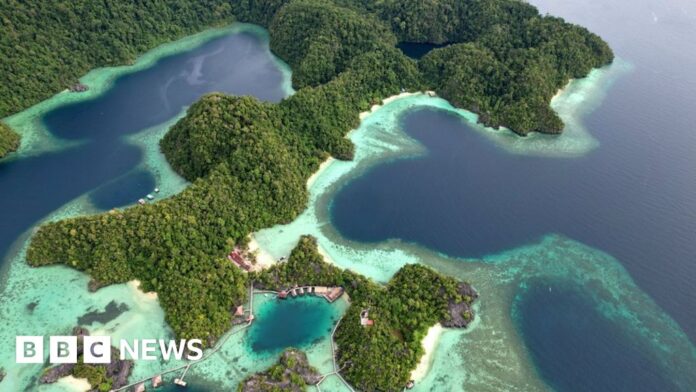Two men are carrying torches and homemade arrows as they slip into the ocean at night on an Indonesian island.
They are from an indigenous community of Bajau people – renowned freedivers who find it better to hunt in the dark when fish, lobsters and sea cucumbers are less active.
But they fear time is running out for their traditional way of life.
“Right now, the water is still clear,” says Tawing, one of the fishermen. “But it won’t stay that way… nickel waste enters our water during the rainy season and the current carries it here.”
Nickel is an integral part of global life, used in stainless steel, mobile phones and electric car batteries. As the world shifts to greener vehicles and needs more rechargeable batteries, the International Energy Agency (IEA) predicts that demand for nickel will grow by at least 65% by 2030.


